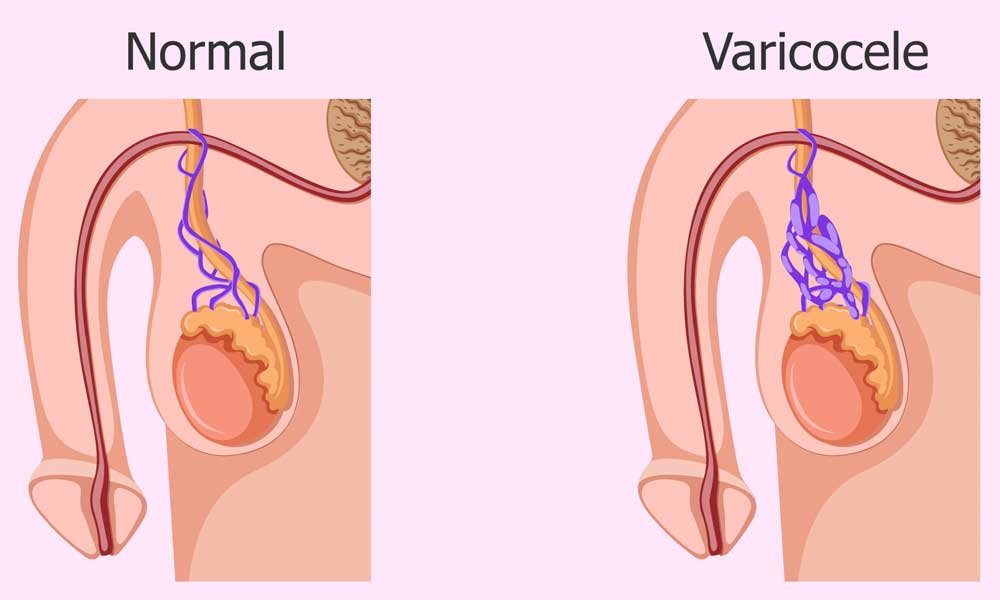Understanding Varicocele: Causes, Symptoms, and Treatment Options
A varicocele is an enlargement of the veins within the loose bag of skin that holds your testicles (the scrotum). Much like varicose veins in the legs, a varicocele occurs when blood pools in the veins due to improper functioning of the valves inside the veins. This can lead to swelling, discomfort, and even fertility issues for some men.
What Causes a Varicocele?
The exact cause of varicoceles is not fully understood, but it is believed that varicoceles form when the valves inside the veins in the spermatic cord prevent blood from flowing properly. This causes the veins to dilate (enlarge), leading to the pooling of blood. Varicoceles are more common on the left side of the scrotum due to the anatomy of the male reproductive system.
Symptoms of Varicocele
While varicoceles often go unnoticed, some men experience noticeable symptoms, including:
- A dull, aching pain in the scrotum, especially after standing or physical exertion
- A feeling of heaviness or discomfort in the testicles
- Visible enlarged veins in the scrotum
- Testicular shrinkage (atrophy)
- Infertility or subfertility (difficulty in conceiving)
The symptoms may become more prominent over time or after physical activities, and they usually subside when lying down.
How is Varicocele Diagnosed?
A physical examination by a healthcare professional can often reveal a varicocele. In some cases, a scrotal ultrasound is performed to get a detailed view of the veins in the scrotum and confirm the diagnosis. This non-invasive test helps assess the size and severity of the varicocele.
Treatment Options for Varicocele
-
Conservative Management: If the varicocele does not cause significant symptoms or fertility issues, no treatment may be necessary. Pain can often be managed with over-the-counter pain relievers, wearing supportive underwear, or avoiding heavy physical exertion.
-
Surgery (Varicocelectomy): If the varicocele causes pain, testicular atrophy, or fertility problems, surgery may be recommended. In a varicocelectomy, the affected veins are tied off or removed, allowing normal blood flow to resume.
-
Percutaneous Embolization: A minimally invasive procedure where a radiologist uses a catheter to block the affected veins, which helps alleviate symptoms and restore normal blood flow.
When to Seek Medical Help
While many varicoceles do not cause significant problems, it’s essential to see a doctor if you experience:
- Persistent scrotal pain or discomfort
- Testicular shrinkage or swelling
- Difficulty in conceiving after trying for an extended period
Early diagnosis and treatment can help manage the symptoms and prevent potential complications, especially for men concerned about fertility.
Varicocele and Fertility
Varicoceles are known to affect sperm production and quality, leading to reduced fertility in some men. If you and your partner are having trouble conceiving, it’s important to consult a urologist to assess whether a varicocele could be a contributing factor. Surgical intervention can improve sperm parameters in many cases, helping to restore fertility.
Conclusion
Varicocele is a common condition that affects many men, often without noticeable symptoms. However, for those who experience discomfort or fertility issues, effective treatment options are available. With proper diagnosis and medical care, the symptoms and potential complications of varicocele can be managed, allowing you to lead a healthy life.
#Varicocele #MensHealth #MaleFertility #VaricoceleAwareness #Urology #ReproductiveHealth #VaricoceleTreatment #TesticularHealth #FertilityIssues #MenWellness
